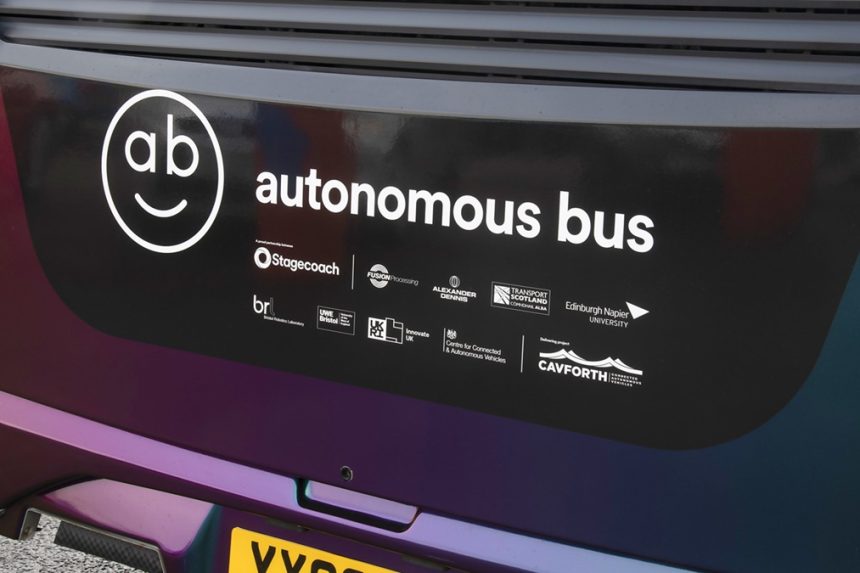The likelihood of coach or bus service delivery using autonomous vehicles with no staff aboard seems remote after publication of a report from the Transport Research Laboratory (TRL) that backs up longstanding industry opinion.
It was commissioned by the Department for Transport to broaden understanding of the topic and provide recommendations for future research and implementation of inclusive automated passenger vehicles.
No human presence could leave some unable to travel
Acknowledged is how the autonomous vehicle path gives “significant” scope to reshape the future of mobility, which sits alongside the UK’s position “at the forefront” of that via adoption of a forward-thinking approach to integrating such an approach into the domestic transport network.
Nevertheless, TRL concludes that there are 66 non-driving roles carried out by drivers of coaches, buses and private hire vehicles (PHVs). Coaches (58) are captured by a slightly higher number of those than buses (56).
21 are judged to be either challenging (15) or impossible (six) to fulfil using alternative solutions in automated passenger services, with physical access to vehicles – including securing wheelchair users – among them.
The report notes how as an extreme, no human presence may thus result in passengers being unable to travel or sustaining injuries. Moreover, it adds that in some of the tasks identified as lacking solutions without a human presence are mandated by law.
The document comes as interest in autonomous bus use continues to grow, despite some setbacks. While it is recognised how vehicles including coaches and buses will eventually drive themselves without need of a ‘safety driver’, the report gives the strongest evidence yet that any expectation of human supervisory presence being removed entirely is a pipedream.

Access is key for autonomous coach and bus service provision
Certain accessibility requirements for passengers are among factors to which no alternative to provision of a staff member on an autonomous coach, bus or PHV can be identified by TRL.
It notes that such needs extend from assisting a passenger to a seat to loading their mobility aids and returning them after the journey. 24% of the UK population have a disability, and of that group, 47% have mobility impairments.
“The non-fulfilment of this role would mean passengers who have mobility impairments, are wheelchair users, are visually impaired or use any mobility aids may not be able to access the vehicle,” TRL concludes.
Besides accessibility, other non-driving tasks that will be difficult or impossible to deliver without a human presence are identified. Recognising that a passenger – including one with disabilities – at the roadside wishes to board is one, and being aware that all intending passengers are aboard is another.
Ensuring that a vehicle is not overloaded and that all passengers are seated before moving away are also highlighted as difficult to deliver without a human presence, although artificial intelligence could come into play. That is set against concern that the view of such cameras could be obstructed. Revenue protection is also noted.
Importantly for wider policy objectives, safety of passengers is identified as a concern by TRL. Protecting users from harm or harassment is cited, as is an acknowledgement that cohorts including women and girls face elevated risks of that behaviour.
While some human non-driving tasks are difficult or impossible to otherwise deliver, the report notes how a greater number can be fulfilled without a driver or onboard attendant in relative ease. Providing information, maintaining cleanliness, taking fares and attending to lost property are among those, with technology key to alternative provision.
For tasks with no obvious alternative to human delivery, TRL advocates prioritising the development of potential solutions, although further factors – such as how they could apply to the digitally excluded – are also in play. There is also a question over public acceptability.

Regulatory and industry view on autonomous services
One senior transport industry leader recently noted how “people need people” in relation to coach and bus automation and that human presence will always be key to security, safety and accessibility.
Another prominent figure in the regulatory field adds that legislation for autonomous vehicles has been written to allow flexibility, something they view as important. Research has also shown that autonomous driving gives a better standard of safety than human control.
They underline that key in the future will be avoiding a position where a safety incident with an autonomous vehicle brings that technology to a halt, noting how if that was to occur, there would be a risk of the UK losing out.
Those expert views coupled to the TRL research give a strong indication that while autonomy will ultimately provide a benefit to the domestic coach and bus industry, any hope of it being the ultimate answer to staffing problems is unfounded.
Download the TRL report from this link.


























